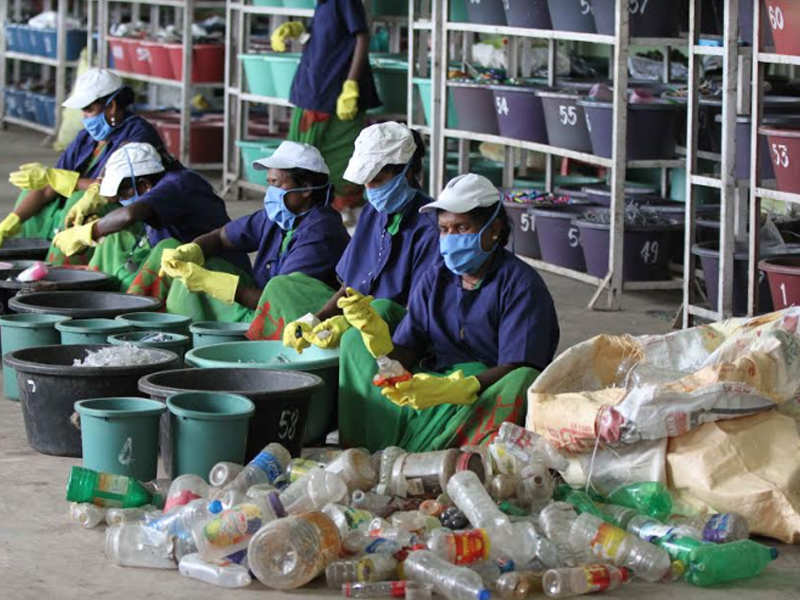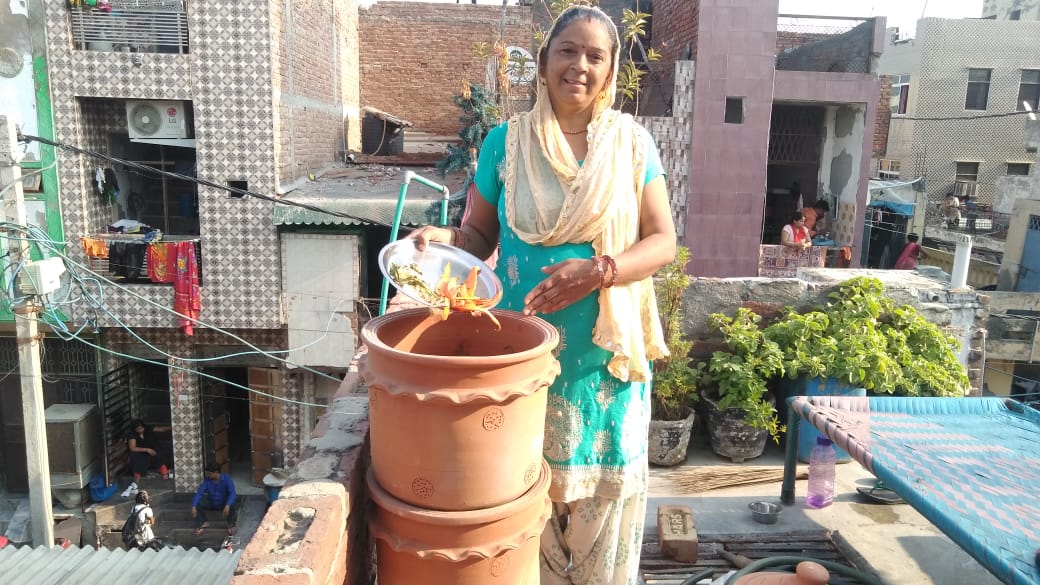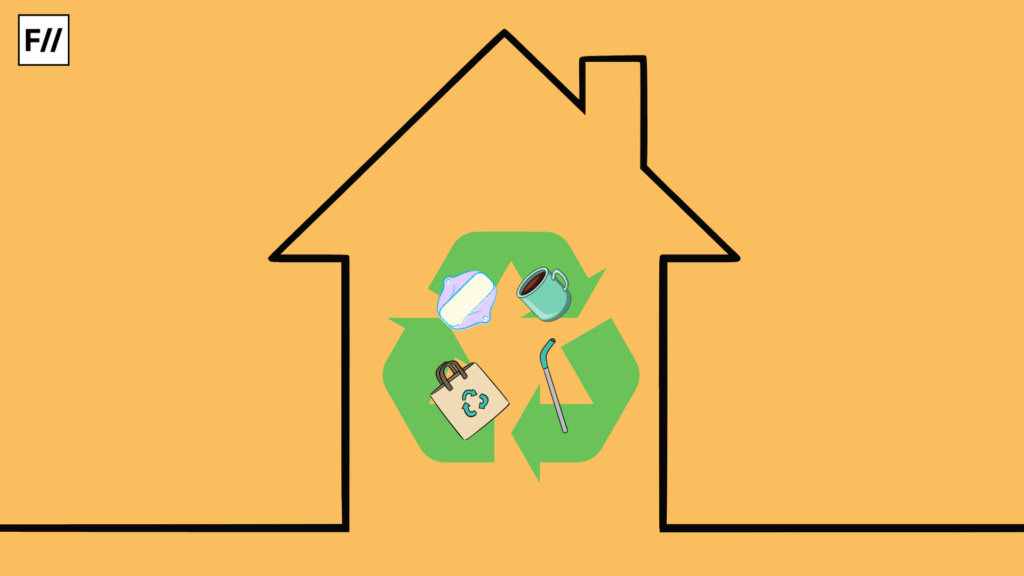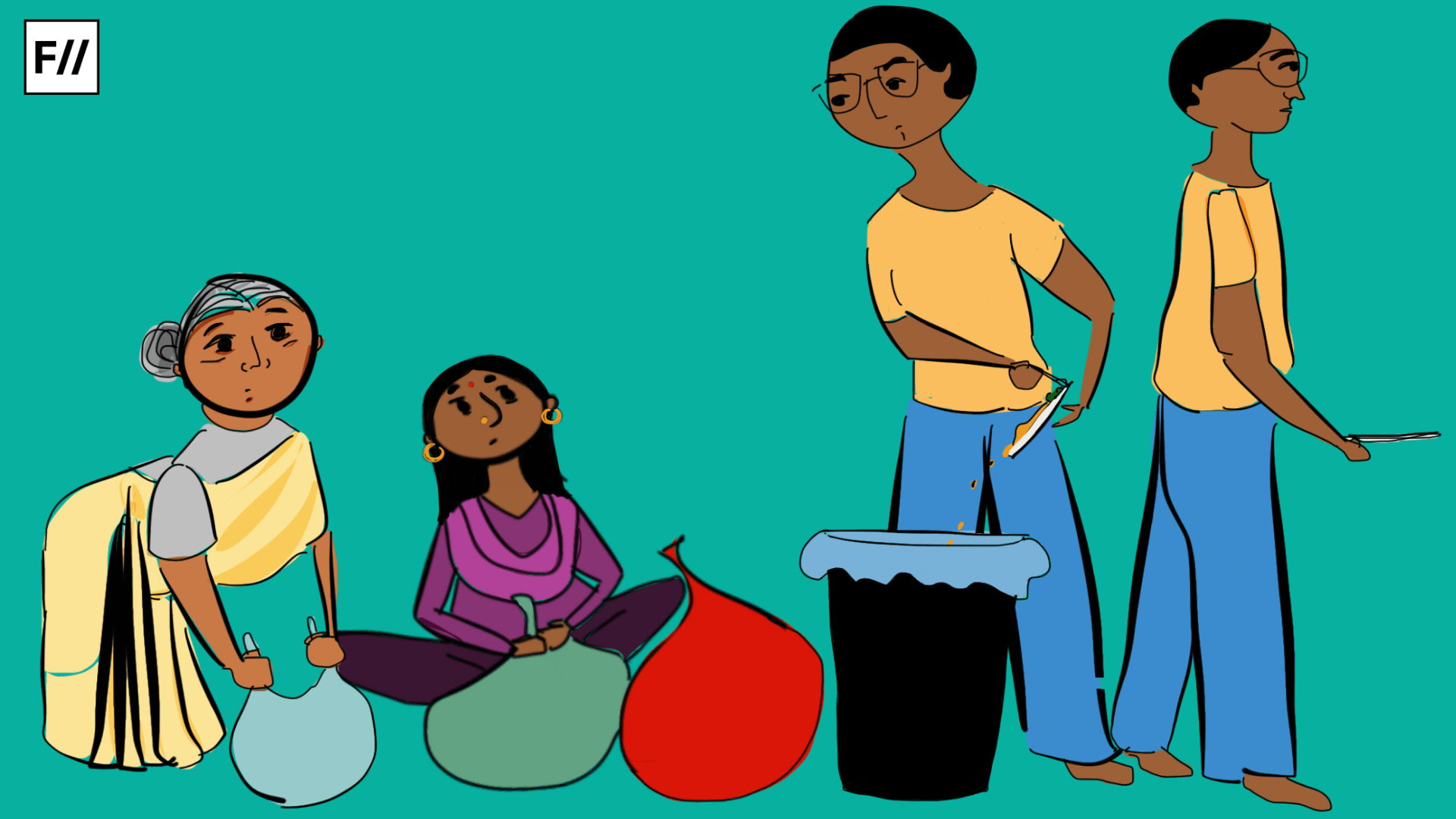Editor’s Note: FII’s #MoodOfTheMonth for July 2021 is Sustainability. We invite submissions on the diverse aspects of sustainability throughout the month. If you’d like to contribute, kindly email your articles to sukanya@feminisminindia.com
The advent of the pandemic has introduced us to brand new challenges at both the home and work fronts. During complete lockdowns, when the entire nation remains on halt, access to essential services also get disrupted. This crisis has paved way for a switch to a more sustainable lifestyle within households.
Women are at the receiving end of the negative implications of the pandemic within the domestic space, with house work and professional responsibilities weighing down their shoulders. An important inference from the pandemic is the indispensable contribution of women towards sustainability within households. It is often the women in the house who helm sustainability initiatives like waste management, kitchen gardens, sustainable food budgeting and the like.

While this switch towards sustainability is appreciable, the onus should not completely fall on women. Environmental sustainability should be a collective process involving every member of the family, instead of being a gendered one. The pandemic has invoked the need to restore our lifestyle and rethink gender roles in the process of our sustainability switch.
The need to focus on the gender lens has been emphasised by the United Nations Women Executive Director Phumzile Mlambo-Ngcuka, where she insists on collaborative solutions by getting insights from women and merging the gender gap in eco friendly living. This stands true as most of our ecological responses start from the kitchen, which is a space traditionally assigned to women.
Women are also always looked upon as the saviours of the planet which eventually places the burden of conservation on women as well. The onus of environmentally conscious purchase therefore, often falls on women within households. Studies reinstate the scant role of men in sustainable domestic practices in the areas of water conservation, recycling and energy consumption
The social constructs of gender have assigned different sets of roles to men and women. Women have always been given the primary care taking role right from a young age. Most of us can relate to the fact that we were expected to help our mothers in the kitchen while our brothers get to play for hours together in a day. It has been long conditioned that women are expected to serve the family and are held accountable for the family’s functioning. The disproportionate labour division, skewed access to productive resources, and miniscule involvement in decision making reduce women to passive members of the family.
One of the most ignored and least acknowledged gendered household practice is waste management. Waste management and segregation has always been performed by women, be it within the family or as part of work. Majority of the domestic help roles are predominantly taken up by women from lesser privileged social backgrounds.
The way we even perceive waste or dirt differs with the gender of the person handling it and our approach towards recycling and reuse is also influenced by gender roles. Menstrual waste, for example, is hidden from the male members, while any and every waste of a male member of the family is handled by the women without any taboo.
Women are also always looked upon as the saviours of the planet which eventually places the burden of conservation on women as well. The onus of environmentally conscious purchase therefore, often falls on women within households. Studies reinstate the scant role of men in sustainable domestic practices in the areas of water conservation, recycling and energy consumption.

The involvement in waste management at community levels also has a gendered angle. The waste removal on the streets involving recycling scrap is an informal job with no long term income. Studies reveal that men are employed in equipment based roles that involve loading and unloading of materials for recycling that are manually picked up by women.
The jobs assigned to men and women vary significantly with women taking up the time consuming and repetitive job of collecting and sorting the materials manually sourced for recycling. Statistics posit that women make up 90% of the labourers who work as recycling waste pickers, with a considerable number of them being widows and single mothers.
Also read: What Happens When Women Informal Workers Devalue Their Own Work?
A study notes: Women’s participation in this field tends to be limited to basic jobs and starting levels of the value chain – including sweeping the streets, collection of mixed wastes and supporting their partners in carrying and disposing of the trash in the bins. The nature of participation in processing and recycling factories is also unregulated and women are engaged primarily as daily wage workers. As a result, women on an average earn half that of men in the sector.
The specific health risks that women may be exposed to in this process is neglected and they are often left out from the workforce when this process becomes mechanised.

Such a gendered assignment of waste segregation and the exploitation of women’s labour can be traced back to the historical events of war times. Housewives were approached to cooperate in national efforts through waste material collection during the Second World War. The decision making in waste collection and segregation has always been the job of women, and men seldom have the onus of any visible involvement.
Women are generally considered more ecologically conscious as compared to men, and this definitely has its roots in the way women are brought up. They are instilled with a sense of responsibility and given the burden of care, conservation and management from an early age
Though women are put in charge of waste disposal, their concerns are also seldom heard or amplified. In how many of the apartment association meetings do we see women’s opinions on waste management being taken seriously and responded to?

The fact that waste management has been assigned to women has also led to it being reduced as a job with no importance or effort, as is the case with every other job that is done by women. This is indicative of the patriarchal attitude towards the labour of women, especially within households, which is considered to be of lesser significance owing to its gendered foundations. On the contrary, women have historically been in the forefront of environmental movements like the Chipko, and are also major contributors to the advocacy of environmental conservation and ecological protection.
Women are generally considered more ecologically conscious as compared to men, and this definitely has its roots in the way women are brought up. They are instilled with a sense of responsibility and given the burden of care, conservation and management from an early age.
The market also puts extra onus on women with respect to sustainability by projecting that it is on women to make more sustainable choices like using menstrual cups or setting up vegetable gardens at home. With women’s financial independence having a long way to go in a country like India, these gendered notions only exacerbate the unfair predicaments that women face.

Sustainability within households also requires the addressing of the gender gaps and inequality engraved in the process. These inequalities are deep rooted in the unequal power structures that lead to the under – valuation of women. Cultural norms and gender constructs push women to a disadvantaged position where their labour is overused while their representation remains minimal.
Also read: Remembering The Wages For Housework Movement During This Lockdown
Though the pandemic has brought about a conscience rooted in sustainable practices within our homes, it has also brought to light the reinforcement of gender roles in the domestic space. We must note that sustainability, waste management or any activity within a space is the collective responsibility of everyone who lives in that space. We must use this as an opportunity to unlearn our biases and make the sustainability journey one that is founded on gender parity and collaboration.
Lavanya (She/Her), is a doctoral researcher and proud feminist working on women and media, from Chennai. She loves exploring gender and digging deep to deconstruct patriarchy. She employs the gender lens in everyday life to understand the complexity of gender and as a media studies graduate, she initiates dialogues about films on gender that grab her attention. She is also interested in an eco-friendly lifestyle and is in the journey of learning and unlearning about the environment and sustainability. You may find her on Facebook
Featured Image: Ritika Banerjee for Feminism In India




